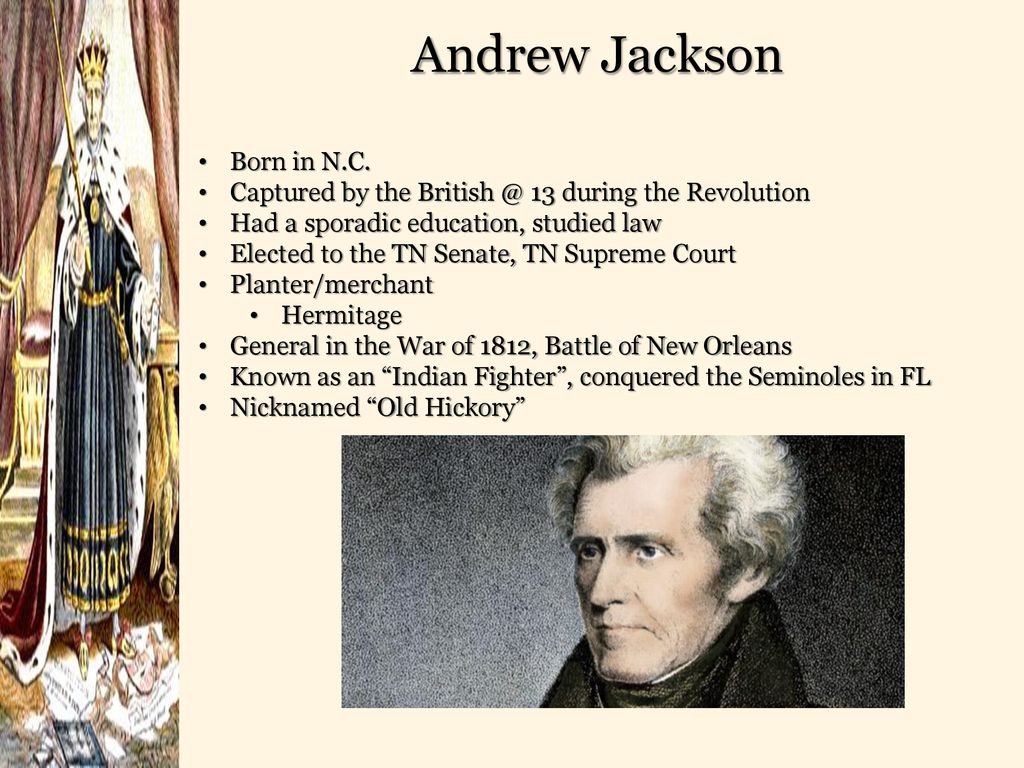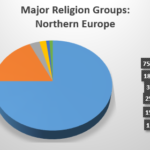Andrew Jackson's Faith: The Religion and Religious Journey of the Seventh U.S. President

Introduction: Understanding the Religious Life of Andrew Jackson
Andrew Jackson, the seventh president of the United States, remains one of the most influential-and controversial-figures in American history. Often remembered for his populist political style and decisive leadership, Jackson’s personal beliefs, especially his religious faith, played a significant role in shaping both his character and his presidency. This article explores the details of Jackson’s religious background, how his faith developed over time, and the practical implications this had on his public life and policies. We provide actionable steps for those interested in further research or learning about presidential faith in American history.
Early Life and Religious Upbringing
Andrew Jackson was born in 1767 in the Waxhaws region along the border of North and South Carolina. Raised in a
strict Presbyterian household
, Jackson’s earliest exposure to religion was firmly rooted in the teachings and practices of the Presbyterian Church.
[4]
Biographers consistently note that while Jackson was surrounded by faith and tradition during his youth, his personal interest in religion was limited at first. He was known for his fiery temperament and adventurous spirit, characteristics that often overshadowed religious devotion in his early years.
[1]
From Irreligious Youth to Devout Believer
Despite his religious upbringing, Jackson’s young adulthood was marked by periods of irreligion and controversy. He participated in duels, was involved in Freemasonry, and was often described as unruly-a far cry from the devout image he would later cultivate.
[1]
However, as Jackson aged, especially after personal tragedies such as the death of his wife Rachel, he grew increasingly reflective and religious. By the late 1830s, Jackson’s faith became a defining feature of his private and public life.
In 1838, Jackson formally joined the
Presbyterian Church
, becoming a communicant member at the Hermitage Presbyterian Church in Nashville, Tennessee.
[2]
His commitment was not merely ceremonial; he became deeply involved in church life and was even nominated to serve as a ruling elder-a position he declined on what he cited as biblical grounds.
[1]
Jackson’s Religious Beliefs in Practice
Jackson’s religious convictions were rooted in
Christianity
, specifically Presbyterianism. Yet, he adapted these beliefs to fit his own worldview. Although he was formally a Presbyterian, some historians argue that he rejected certain aspects of Calvinist doctrine, instead emphasizing salvation through personal faith in Jesus Christ, the authority of the Bible, and the virtue of individual interpretation.
[3]
His faith was deeply personal and practical, often expressed in robust terms and clear statements about his trust in God’s providence.

Source: discover.hubpages.com
Jackson’s letters to his wife Rachel are illustrative of his faith. In one, he wrote, “I trust that the God of Isaac and of Jacob will protect you, and give you health in my absence, in him alone we ought to trust, he alone can preserve, and guide us through this troublesome world, and I am sure he will hear your prayers.”
[2]
Such language reveals a man who, at least later in life, saw divine providence as an active force in his daily existence.
Faith and Public Policy: Separation of Church and State
Despite his deepening personal faith, Jackson was a
staunch defender of the separation of church and state
.
[4]
He believed that the U.S. Constitution guaranteed freedom of religion and that no official state religion should exist. Jackson’s view was that all Christians-regardless of denomination-should be respected under the law, and he often spoke against the idea of religious tests or government favoritism. He once declared, “Our excellent constitution guarantees to every one freedom of religion… All who profess Christianity, believe in a Savior and that by and through Him we must be saved.”
[4]
For those interested in historical documents or further information on presidential attitudes toward religious liberty, consider visiting official archives such as the
National Archives and Records Administration
or searching for “Andrew Jackson presidential papers” through reputable academic databases or the Library of Congress digital collections.
Religious Tolerance and Controversy
Jackson’s brand of religious tolerance was, by modern standards, limited. He insisted on inclusion and respect among Christian sects, but his tolerance did not extend beyond the Christian faith. While he welcomed Presbyterians, Episcopalians, Baptists, Methodists, and Roman Catholics as “good Christians,” there is little evidence to suggest he considered non-Christian faiths as part of this framework.
[4]
It is important to recognize that Jackson’s era was marked by religious revivalism and the spread of evangelical Protestantism across the American frontier. Jackson’s own faith journey mirrored the broader movement toward evangelical, populist expressions of Christianity. His personal statements and public conduct reflect a man who, despite past excesses, became a model of public Christian devotion later in life.
[5]
The Influence of Faith on Leadership and Policy
Jackson’s religious convictions influenced his personal life and his presidential decision-making. He often attributed national events and personal outcomes to God’s providence. However, he did not see his faith as a justification for altering or suspending constitutional principles. Jackson’s presidency is remembered for controversial policies such as the forced relocation of Native Americans and his support for slavery-policies he did not see as in conflict with his religious convictions at the time.
[3]
This highlights the complex interplay between personal belief, cultural context, and public policy.
Researching Presidential Religion: Step-by-Step Guidance
If you are interested in conducting your own research into the religious life of Andrew Jackson or other presidents, you can follow these steps:
- Consult Authoritative Biographies: Search for biographies of Andrew Jackson at your local library or through reputable online booksellers. Authors such as Jon Meacham and Robert V. Remini provide detailed accounts of Jackson’s religious life.
- Review Primary Source Documents: Access Jackson’s personal letters and presidential documents through the Library of Congress or the National Archives. These repositories offer digital collections where you can search using terms like “Andrew Jackson religion” or “Jackson Presbyterian Church.”
- Explore Academic Journals: Use academic databases such as JSTOR or Oxford Academic to find peer-reviewed articles on presidential faith and its historical impact. Search for “Andrew Jackson faith,” “religion in the White House,” or “Presbyterianism in early America.”
- Visit Historical Sites: If possible, visit the Hermitage-Jackson’s estate near Nashville, Tennessee-which includes interpretive materials on his faith and church involvement. The Hermitage is a museum and historic site open to the public, and official information can be found by searching for “The Hermitage Andrew Jackson” online.
- Engage with Religious History Societies: Organizations such as the American Society of Church History or local historical societies may provide lectures, resources, or guides on topics related to religion and the presidency.
Alternative Approaches and Broader Context
While much focus is placed on Jackson’s Presbyterianism, understanding his religious life within the larger context of American religious diversity provides a richer picture. Other early presidents, such as Thomas Jefferson and John Adams, were more closely associated with Deism or Unitarianism. Comparing these trajectories can help contextualize Jackson’s shift toward evangelical Christian practice late in life.
For those wishing to compare presidential religious views, you may refer to published compilations on “Religion in the Oval Office” or search for “Presidential religious beliefs” in major academic or public libraries. If seeking policy-related religious statements, use official government archives or the White House Historical Association for verified information.
Key Takeaways and Next Steps
Andrew Jackson’s religious journey illustrates a common American narrative: a youthful period of irreligion followed by a mature embrace of faith, culminating in active church membership and personal devotion. While his beliefs were rooted in Presbyterian Christianity, Jackson’s faith was also shaped by frontier evangelicalism and his personal experiences of loss and leadership. Importantly, Jackson’s legacy demonstrates the enduring tension between personal faith and public duty in the American presidency.
To learn more about Andrew Jackson’s religious beliefs and their significance, consider visiting official historical sites, consulting authoritative biographies, and exploring primary source documents in national archives. If you are seeking resources on religious liberty or the separation of church and state, you can search the official websites of the
Library of Congress
,
National Archives
, or the
White House Historical Association
for accurate and comprehensive materials. Always ensure that the sources you consult are reputable and up-to-date.

Source: thestudyaide.blogspot.com
References
- Hollowverse (2022). The Religion and Political Views of Andrew Jackson.
- Puritan Board (2019). Christian truth from an unlikely American president.
- God and Country (2018). Andrew Jackson.
- Oxford Academic (2015). 4 Andrew Jackson: Providentialist President.
- The Gospel Coalition (2017). What Andrew Jackson Could Teach Donald Trump about Religion.






